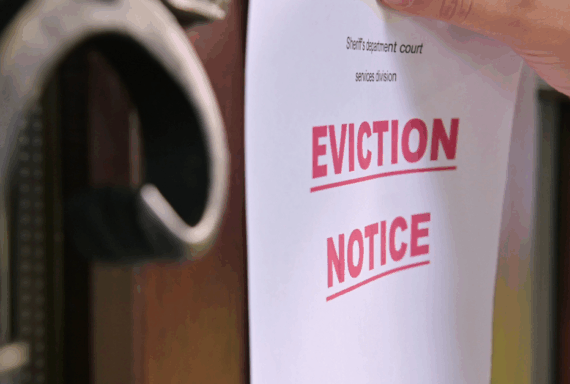
Selling a tenant-occupied property isn’t the same as selling a vacant one. You’ll need to respect the existing lease, follow local laws, and make sure the tenant is treated fairly. Sometimes it’s easy, especially if your tenant is paying on time and keeping the place clean. Other times, you may encounter delays or legal roadblocks if the lease agreement is overly strict or if a delinquent tenant is involved.
At Faranesh Real Estate and Property Management, we regularly assist landlords and property owners in selling homes with tenants still residing in them. We’ve managed dozens of successful property sales while tenants were still in place. Our goal is always the same: to protect the owner’s interests, respect the tenant’s rights, and guide everyone through a smooth and legal process. With the right steps, you can sell your rental property without stress, even when it’s still occupied.
This guide will break down your options and responsibilities. We’ll cover what happens to the lease, how to show an occupied property, and when it makes sense to wait for a lease to end. If you’re selling a rental property, it’s essential to understand both your legal obligations and the practical steps involved. Here’s what you should know.
What Happens When You Sell a Rental Property With Tenants?

When you sell a rental property with tenants, the buyer assumes the role of the new landlord. This means the current lease transfers to the new owner, including all lease terms and obligations. If your tenant has a fixed-term lease, the buyer must honor it until it ends, unless both parties agree to end it early. This situation often works out well for real estate investors who want immediate rental income. It’s less ideal for buyers who plan to move in themselves and need the property to be vacant.
From a legal standpoint, selling a home with tenants means the lease or rental agreement stays in place until the lease expires. The tenant’s lease remains in effect under the same conditions, and the tenant continues to pay rent to the new landlord. Any security deposit must be transferred to the buyer at closing.
At Faranesh Real Estate and Property Management, we handle this entire process for our clients. We inform tenants, manage the sale process, and ensure all documents are updated and compliant with legal requirements. That way, sellers don’t have to deal with the headaches themselves.
Legal and Practical Considerations
Selling an occupied rental property requires following both legal requirements and practical steps.
- Check the lease agreement. Does it have an early termination clause? Does it allow showings? Are there notice requirements? Knowing these details helps avoid problems later.
- You need to comply with state and local laws. These often include giving the tenant proper notice before any showings or inspections. You may also be limited in how you market the property or communicate with your existing tenant during the selling process.
- Another legal point: tenants have rights, even when the property is being sold. You can’t pressure them to leave or skip required notices. Any violation of these laws could result in the property sale being slowed or canceled, and may lead to fines.
A real estate attorney can review your documents and make sure you’re on solid legal ground. Alternatively, you can work with our property manager at Faranesh Real Estate and Property Management. We will coordinate with the tenant and handle all communications to ensure your sale stays on track.
Types of Leases and How They Affect a Property Sale

The kind of lease your tenant has makes a big difference when selling. Here are the common types of leases:
Fixed Term Lease
If your tenant is on a fixed-term lease, you cannot terminate it early unless the lease terms permit early termination. The buyer will need to accept the tenant and honor the lease agreement until it is fully executed. Some buyers are fine with this, especially if the tenant pays on time and takes care of the home.
However, buyers who want to move in may avoid homes with active leases. You can offer them an option to buy the house once the rental agreement expires, or try to negotiate a move-out with the tenant.
Month-to-Month Lease
This lease offers more flexibility. You can typically provide 30 or 60 days’ notice to terminate the lease, depending on local laws. Still, even with this setup, you must provide proper notice and follow the correct timeline.
How to Attract Buyers When Tenants Are Living In the Property
Selling a home with tenants can scare off some buyers, but it can also attract the right ones. Most real estate investors prefer tenant-occupied rental properties because they provide steady rental income from day one. To make the home attractive, you can do the following:
- Keep rent at a fair rate. If the tenant is paying below-market rent, investors may view that as lost income.
- Ensure the tenant is up-to-date on rent payments and is in compliance with the lease agreement.
- Provide a clear lease history, including payment records and any lease violations.
Photos that show flexibility and property condition also matter. If your current tenant allows it, try to schedule cleaning and maintenance before listing.
Selling Options With Tenants in Place
Depending on your situation, here are three paths for selling:
1. Wait Until the Property Is Vacant
Let the rental agreement expire, wait for the tenant to move out, and then list. This gives you more control over showings, staging, and pricing. The downside is you might lose rental income while the home sits empty.
2. Sell With the Tenant in Place
If the tenant is cooperative and pays on time, this can work well. Prospective buyers take over the lease and receive immediate rental income. Just make sure the tenant agrees to showings and the lease is in good shape.
3. Negotiate an Early Move-Out
Some owners offer a cash payment to the tenant to encourage them to move out early. This is called “cash for keys.” Ensure that everything is documented correctly, including the process for handling the security deposit.
Common Challenges When Selling a Tenant-Occupied Property

Selling with tenants can get tricky. Here are common issues we’ve seen:
- Showings: You must follow the law and give proper notice before entering. If your tenant refuses access, it limits the number of potential buyers who will see the property.
- Cleanliness: The home may not look its best. Since tenants don’t benefit from the sale, they may not be motivated to keep it clean.
- Delays: Tenants may move out later than expected. Or they may refuse to leave at all. If that happens, eviction may be necessary. This is something that requires time and legal assistance.
Lease to Own, Seller Finance, and Other Creative Deals
Sometimes, a tenant may want to buy the home. A lease-to-own or seller-financed agreement may be suitable in this case.
In a lease-to-own agreement, a portion of the rent is applied toward the purchase of the home later. In seller finance, the seller becomes the lender, and the buyer makes payments directly. These options are most effective when both parties trust each other. Just ensure the deal is legal, well-documented, and transparent.
We can draft and manage these agreements on behalf of our clients. We also help screen whether the buyer is financially ready.
Sell Your Rental Property the Right Way
Selling a tenant-occupied property doesn’t have to be difficult. But you do need a plan. You must follow the lease agreement, honor your legal obligations, and make sure both your rights and your tenant’s rights are protected.
At Faranesh Real Estate and Property Management, we handle this whole process. From working with property managers to coordinating with real estate agents, we ensure everything runs smoothly. We help you avoid legal problems and secure the best sale price while maintaining the health of your rental business.
If you’re ready to sell a rental property with tenants, give us a call. Let’s make your next property sale simple, legal, and stress-free. Contact us today to help you get started.




